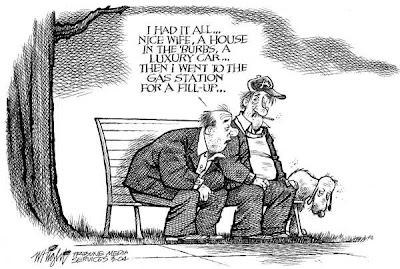
On this day in 1953, John Christie, 54, was sentenced to hang for murdering his wife and then hiding her body under the floorboards of their Notting Hill home in London. Christie had admitted murder but pleaded not guilty by reason of insanity.
John Christie was an English serial killer in the 1940s and 1950s. He murdered at least six women and was implicated in the murder of two other victims. Prior to his arrest, he was involved in another murder trial, as a principal witness for the Crown in the trial of his fellow tenant, Timothy Evans. Evans was executed for the murder of his wife and daughter. However, Christie confessed to the murder of Beryl Evans prior to his execution.
During his trial the court had been told that eight female bodies, including that of a baby girl, had been found at Christies home at 10 Rillington Place. They had all been strangled. The bodies also included Christie's wife, Ethel.
Christie was hanged at Pentonville prison on 15 July 1953. According to newspaper reports, there were 200 people waiting outside the gates to see the notice of execution posted.
Christie's Notting Hill home was torn down and the whole decrepit street was rebuilt in the 1970s as Bartle Road.
John Christie was an English serial killer in the 1940s and 1950s. He murdered at least six women and was implicated in the murder of two other victims. Prior to his arrest, he was involved in another murder trial, as a principal witness for the Crown in the trial of his fellow tenant, Timothy Evans. Evans was executed for the murder of his wife and daughter. However, Christie confessed to the murder of Beryl Evans prior to his execution.
During his trial the court had been told that eight female bodies, including that of a baby girl, had been found at Christies home at 10 Rillington Place. They had all been strangled. The bodies also included Christie's wife, Ethel.
Christie was hanged at Pentonville prison on 15 July 1953. According to newspaper reports, there were 200 people waiting outside the gates to see the notice of execution posted.
Christie's Notting Hill home was torn down and the whole decrepit street was rebuilt in the 1970s as Bartle Road.
















